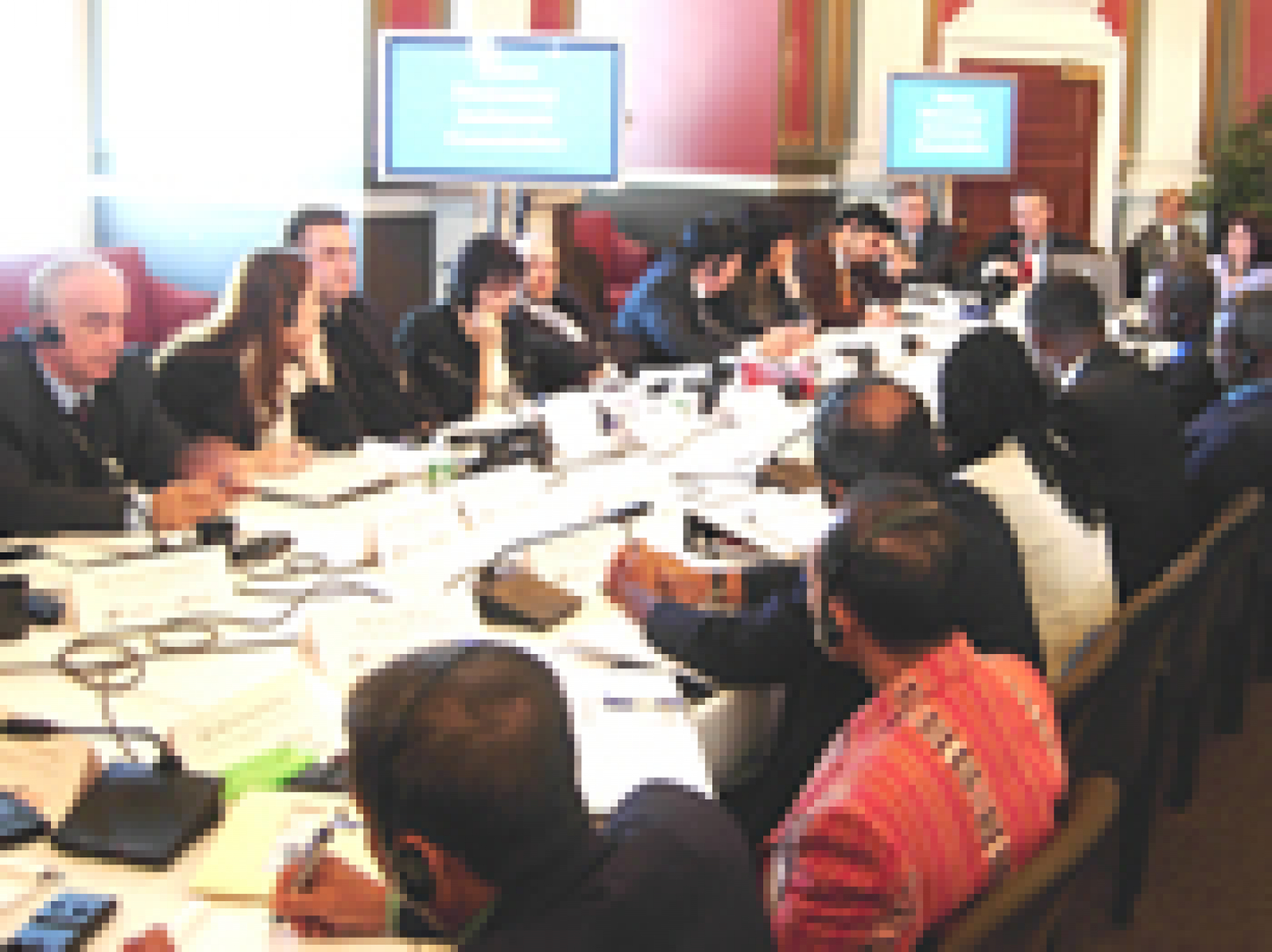
SHARE
High-level officials from nine legislatures around the world seeking to improve parliamentary research and administration in their lawmaking bodies came to Washington to participate in a two-week program put on by the House Democracy Assistance Commission (HDAC) in association with a number of organizations including the National Democratic Institute (NDI).
Representatives from legislatures in Afghanistan, East Timor, Georgia, Haiti, Indonesia, Kenya, Liberia, Macedonia and Mongolia, all HDAC “partner” countries, met in early December for a Parliamentary Staff Institute in the Library of Congress. Those attending included secretaries general, clerks, chiefs of staff, legal counsels, directors of research and specialized analysts.
The goal of HDAC, formed in 2005 and led by Chairman David Price, D-NC, and Ranking Member David Dreier, R-CA, is to strengthen democratic institutions in emerging democracies through the provision of expert advice by Members of Congress, administrative officers and staff. The International Republican Institute (IRI), the Congressional Research Service (CRS) and USAID participated with NDI in coordinating the program. The institute was modeled after the Frost-Solomon Task Force Parliamentary Institutes conducted by CRS in the early 1990s that focused on specific topics of relevance to legislative support service staff.
In addition to their sessions on Capitol Hill, the participants traveled to Annapolis, MD, to observe the Maryland General Assembly – a state legislature with a smaller budget and constituency, and closer to scale with their own parliaments. A particular highlight was the chance to witness first hand the sophisticated voting technology used by the Maryland Senate. The visitors cast “votes” electronically and watched as they were tallied on a large screen, demonstrating one technology that can be used to record votes in a legislature.
During most of the institute, the participants were split into two tracks – administrative and research. The administrative track met with U.S. congressional staff who provided a glimpse into how various aspects of the House of Representatives are administered, including press relations, security, legislative recordkeeping and information technology. The participants also discussed issues facing their own parliaments and how U.S. models might be applicable, often engaging in valuable exchanges with other delegations. When talking about their respective administrative experiences, Afghan Secretary General Ghulam Hassan Gran and Liberian Secretary of the Senate J. Nanborlor F. Singbeh “high-fived” over a meeting table in a show of solidarity after discussing how their parliaments face similar issues and challenges.
On the research track, participants had a unique opportunity to engage with librarians, researchers and analysts at CRS through job shadowing and mentoring sessions. CRS staff spoke about the research process, stressing objectivity and proper sourcing techniques, while offering suggestions on better outreach to clients and MPs and anticipating issues that could require research services. Former Frost-Solomon Task Force co-directors and CRS staff members Bill Robinson, and Francis Miko as well as Canadian Parliament Research Service’s Hugh Finsten consulted on the research track programming and served as the resident research experts throughout the institute.
Following a session on research quality control, B. McCarthy Weh II, Liberian Senate director of research, was enthusiastic about the potential for applying these principles to research in Liberia. Weh said he was keen to bring the quality control techniques he learned back to his own research service to improve its quality and efficiency.
Describing the opportunity to participate in the institute as a “dream realized,” Mr. Singbeh of Liberia echoed all of the delegations in expressing gratitude to the program organizers for putting together a comprehensive curriculum on parliamentary research and administration. Many also expressed interest in maintaining communication with one another, as well as their new congressional staff member contacts, to share progress in their respective parliaments as a result of lessons learned during the institute.
Pictured above: The administrative track attends a panel session on the role of committees in the U.S. Congress led by Staff Director and Minority Staff Director of the House Committee on Foreign Affairs, Bob King, and Yleem Poblete.
–
Published on Jan. 23, 2008


